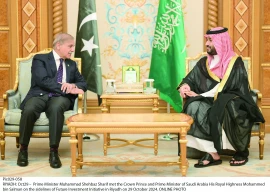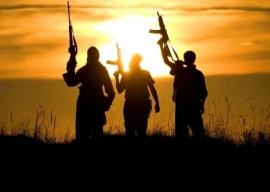
The reserved seats for women in the federal and provincial legislatures should be increased from 16% to 23%. Moreover, 5% to 20% of general seats should be allocated specifically to women. It is crucial for political parties to ensure the representation/women in decision-making bodies.
These demands were made during the inaugural Sindhi Women’s Day ceremony in Karachi on Sunday. Attendees at the event included prominent women from various fields, including sports, law, journalism, and other walks of life, who shared their remarkable achievements.
Mahreen Baloch, a gold medalist in boxing who had represented Pakistan in combat sports at Commonwealth Games, said that even men feel intimidated when women enter the boxing arena. Hailing from Lyari, where men are renowned in boxing, Baloch has played a pivotal role in ensuring women’s inclusion in the sport. Verun Pirzado, a sports teacher, expressed her aspirations to elevate football as the first female referee in football. She stressed the need to empower women not only in academia but also in sports.
Fahmeeda Riaz Shewani, a member of the organizing committee for Sindhi Women’s Day, pointed out that in recent elections, women were mostly confined to reserved seats, despite some contesting on general seats like Maryam Nawaz and Shazia Marri.
However, the 5% condition set by the Election Commission of Pakistan for women candidates on general seats is deemed insufficient. Given that women are 50% of the population, their representation should also be equitable across all seats in assemblies, the Senate, judiciary, and police.
The underrepresentation of women in various fields stems from both administrative policies and the fear and apprehension associated with pursuing employment beyond sunset. The state needs to address these issues to facilitate women’s meaningful contributions to the country. Outdated tribal norms and customs act as barriers, and efforts are required to overcome them.
Despite the challenges, women in Sindh continue to break barriers, from Karachi to Karunjhar and Kashmore. Rabiya Ejaz Sheikh, a designer on YouTube from Khairpur, learned her craft from YouTube, built her channel, and earned enough to construct her own house. She encourages young girls to enter their preferred fields and take advantage of the current era, allowing them to earn from home.
Activist Najma Maheshwari shared her story of defying societal norms. Despite facing criticism when she entered politics, she was eventually supported by her husband, a political activist himself. She works against forced conversions, emphasizing the need to protect young girls from being taken away forcibly and subjected to a life of suffering.
Marvi Kalhoro, a young lawyer, highlighted her journey as the first educated girl in her family. Despite the absence of political awareness in her parents, they supported her education. Today, the literacy rate of girls in her family remains zero. Choosing law as her profession, Kalhoro feels a deep sense of purpose in helping women.
Laila Nasir, a host on a Sindhi channel, discussed the baseless notions that discourage girls from joining the media. She emphasized that with self-confidence and a commitment to one’s rights, there is no danger. Parents should trust their daughters and encourage them to pursue their passions.
Parh Ijaz, who runs her own website, initially wrote columns before shifting her focus to training and guiding women for participation in the media field. Prof Shahnila Zardari said that women should be given safe environment in the universities. All women have the right to get education without fear of any intimidation.
Lok singer Nahid Mallani and Alghoza Nawaz Arbab Khoso performed at the event, which also featured speeches from Wahida Mahesar, Shazia Nazamani, Rubina Chandio, and others.
They all advocated for the enforcement of laws against violence towards women, ensuring the implementation of maternity leave laws in the private sector during pregnancy, and translating education slogans into actionable measures to increase the literacy rate among girls.

1719660634-1/BeFunky-collage-nicole-(1)1719660634-1-405x300.webp)

1732276540-0/kim-(10)1732276540-0-165x106.webp)

1732274008-0/Ariana-Grande-and-Kristin-Chenoweth-(1)1732274008-0-165x106.webp)

1724249382-0/Untitled-(640-x-480-px)1724249382-0-270x192.webp)


1732270499-0/Express-Tribune-(7)1732270499-0-270x192.webp)
1732267715-0/BeFunk_§_]__-(32)1732267715-0.jpg)








COMMENTS
Comments are moderated and generally will be posted if they are on-topic and not abusive.
For more information, please see our Comments FAQ